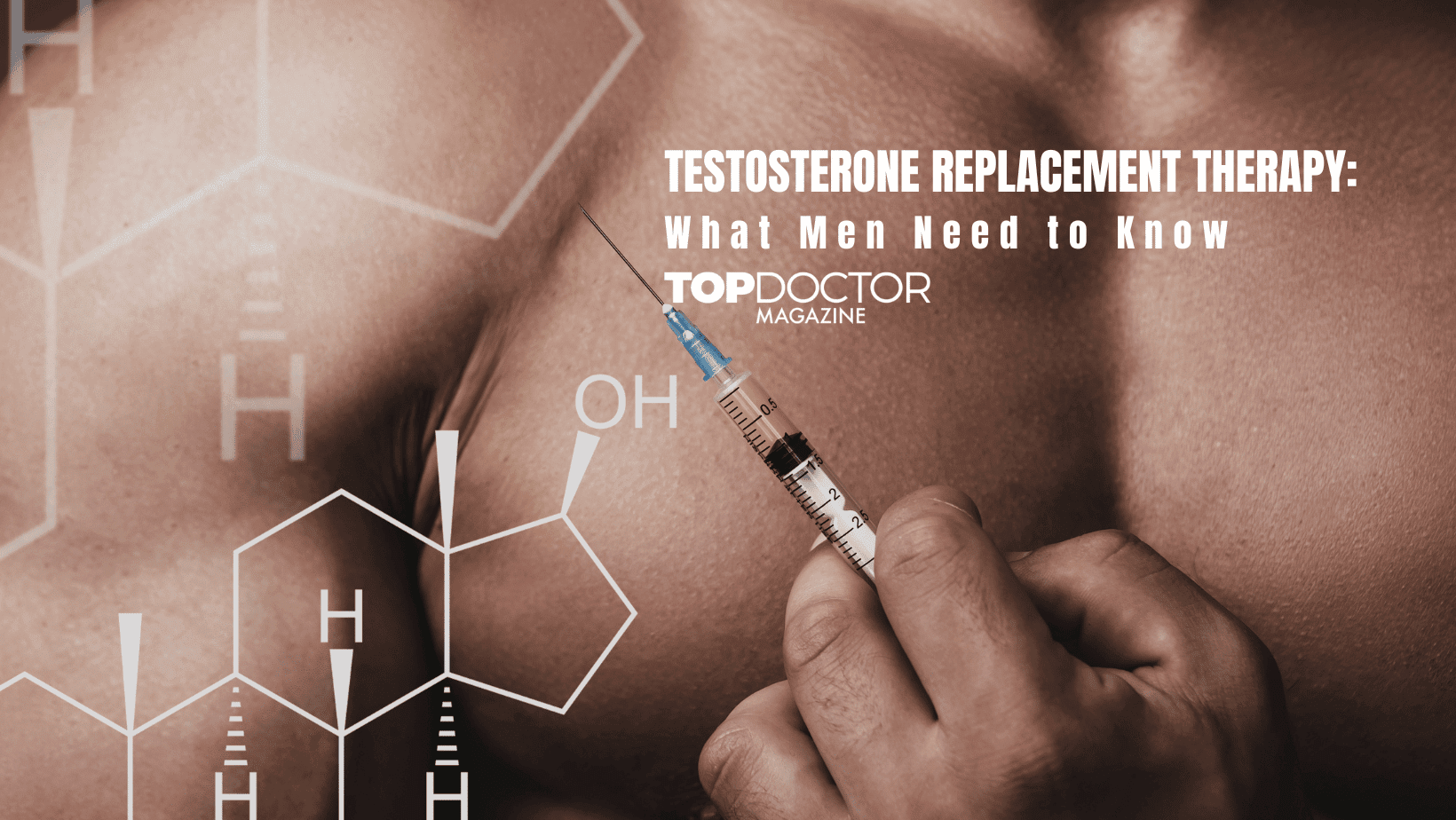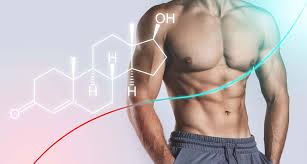At Altius Performance Medicine, we focus on optimizing health and performance for men facing challenges with their testosterone levels. Testosterone replacement therapy (TRT) is an increasingly popular treatment option, offering solutions for those suffering from the effects of low testosterone. The efficacy of testosterone replacement therapy has been well-researched, showing its potential to improve quality of life for many men. In this article, we’ll explore the benefits, risks, and methods of testosterone therapy, helping you make an informed decision about whether this treatment is right for you.
What Is Testosterone Replacement Therapy?
Testosterone replacement therapy is a medical treatment designed to increase testosterone levels in men experiencing low or low-normal testosterone. At Altius Performance Medicine, we specialize in providing personalized care for men with low testosterone levels, tailoring treatments to individual needs. TRT can be administered through gels, injections, or oral testosterone undecanoate, and aims to restore normal serum testosterone levels, particularly in hypogonadal men.

How Does Testosterone Therapy Work?
Testosterone therapy works by supplementing the body’s natural testosterone production with external testosterone, especially in older men and those with testosterone deficiency. By normalizing testosterone levels, testosterone therapy can alleviate symptoms like fatigue, loss of libido, and muscle weakness. Various options, such as testosterone gel or transdermal testosterone, offer flexibility in administration based on patient preferences and lifestyle.
Benefits of Testosterone Replacement Therapy
The benefits of testosterone replacement therapy are extensive. For many men, especially older men, TRT can lead to enhanced physical performance, improved mood, and increased energy levels. At Altius Performance Medicine, we’ve seen firsthand how TRT can transform the lives of our patients.
Effects of Testosterone on the Body
Testosterone is essential for a wide range of bodily functions, including maintaining muscle mass, bone density, and libido. The effects of testosterone on the body are crucial for overall vitality, especially in middle-aged and older men. TRT has been shown to improve muscle strength, cognitive function, and sexual performance. Additionally, it can aid in reducing symptoms of depression in men with low testosterone levels.
The Role of Testosterone in Treating Low Testosterone Levels
In men with low testosterone levels, testosterone supplementation can lead to significant improvements in daily life. Testosterone therapy in men has been linked to enhanced strength, vitality, and overall well-being. At Altius Performance Medicine, we offer comprehensive testosterone treatment plans tailored to the specific needs of men with low testosterone. Whether using testosterone gel, injections, or oral testosterone, we ensure that every treatment is safe and effective.
Risks of Testosterone Replacement Therapy
As with any medical treatment, there are risks associated with testosterone replacement therapy. Understanding the potential side effects and safety concerns is important for making an informed decision. The safety of testosterone replacement therapy is something we take seriously at Altius Performance Medicine, with each patient undergoing thorough evaluations before starting TRT.
Understanding the Potential Risks
Some of the risks associated with testosterone therapy include an increased likelihood of developing cardiovascular issues or prostate cancer. It’s essential to discuss these risks with your healthcare provider. At Altius Performance Medicine, we prioritize the safety of testosterone therapy, monitoring serum testosterone levels closely to mitigate any potential adverse events associated with testosterone.
Adverse Events and Safety Concerns
While testosterone replacement therapy can offer significant benefits, there are potential adverse events to be mindful of. For example, older men receiving testosterone therapy may experience cardiovascular events in men or prostate-related issues. Altius Performance Medicine ensures that our patients receive the safest, most effective treatments, with regular check-ups to minimize risks and maximize the benefits of testosterone replacement.
Who Can Benefit from Testosterone Treatment?
Testosterone treatment is especially beneficial for men experiencing hypogonadism, low testosterone levels, or testosterone deficiency. At Altius Performance Medicine, we specialize in treating men with these conditions, helping them regain their vitality through customized testosterone therapy plans.
TRT in Hypogonadal Men
For hypogonadal men, TRT can offer life-changing benefits. By addressing testosterone deficiency, testosterone replacement therapy helps normalize testosterone levels and improves physical performance. TRT can help middle-aged and older men improve their overall health, mood, and energy levels.
Testosterone Therapy in Men with Androgen Deficiency
Androgen deficiency, particularly in aging men or hypogonadal men with type 2 diabetes, can be effectively treated with TRT. Testosterone replacement therapy not only addresses low testosterone levels but also contributes to better metabolic health. Altius Performance Medicine offers a holistic approach, ensuring that men with androgen deficiency receive the best possible care.
Methods of Testosterone Administration
There are various methods of testosterone administration, each offering distinct benefits depending on the patient’s preferences and needs. At Altius Performance Medicine, we provide options ranging from testosterone gel to injectable testosterone, ensuring each patient has access to the treatment that suits them best.
Testosterone Gel and Transdermal Applications
Testosterone gel and transdermal testosterone are convenient and popular methods for testosterone supplementation. These allow for steady absorption through the skin, offering a non-invasive alternative to injections. Altius Performance Medicine often recommends this form of testosterone therapy for patients seeking a simple and effective way to maintain consistent testosterone levels.
Injectable and Oral Testosterone
Injectable testosterone is a widely used method for those who prefer periodic administration, while oral testosterone undecanoate provides a convenient alternative for men who may not tolerate gels or injections. We offer both options at Altius Performance Medicine, ensuring a tailored approach to each patient’s unique needs.
Efficacy and Long-Term Effects of TRT
The efficacy of testosterone replacement therapy is well-established, especially in improving physical and cognitive performance in men with low testosterone levels. Long-term testosterone treatment has shown positive effects on muscle mass, energy, and bone health. At Altius Performance Medicine, we’ve seen how TRT can dramatically improve the lives of men seeking to regain their vitality.
Long-Term Effects of Testosterone Therapy
Long-term testosterone therapy has been linked to increased muscle strength, enhanced mood, and better bone density. The effects of long-term testosterone are particularly beneficial for older men who experience a decline in physical performance due to low testosterone. TRT can also contribute to improved cardiovascular health and a reduced risk of osteoporosis, making it a valuable treatment for men as they age.

Conclusion
At Altius Performance Medicine, we understand that deciding whether testosterone replacement therapy is right for you can be complex. Testosterone replacement therapy offers numerous benefits, including increased energy, improved muscle mass, and enhanced sexual function. However, it is essential to understand the risks and have a comprehensive consultation before starting TRT. For men with low testosterone levels, testosterone deficiency, or hypogonadism, TRT could be the key to unlocking better health, vitality, and quality of life.
FAQs
What does testosterone replacement therapy do?
Testosterone replacement therapy (TRT) aims to restore low testosterone levels in men, helping to alleviate symptoms like fatigue, low libido, and muscle loss. It works by supplementing the body’s natural testosterone production, improving energy, mood, and overall physical well-being.
What is the downside of testosterone therapy?
The downside of testosterone therapy includes potential risks like increased chances of cardiovascular issues, prostate enlargement, and mood changes. It may also cause side effects such as acne, fluid retention, and changes in red blood cell count, which require careful monitoring.
Who is a good candidate for testosterone replacement therapy?
A good candidate for testosterone replacement therapy (TRT) typically has low testosterone levels confirmed by blood tests and experiences symptoms such as fatigue, low libido, or mood changes. It’s essential that candidates also have no contraindications, such as certain cancers or untreated sleep apnea, and that they are monitored closely by a healthcare provider.
How is low testosterone diagnosed?
Low testosterone is diagnosed through a combination of symptom assessment and laboratory testing. A healthcare provider will evaluate symptoms and conduct blood tests to measure total testosterone levels, typically in the morning when levels are highest. A diagnosis is often made if testosterone levels are below 300 ng/dL along with the presence of symptoms. Additional tests may be performed to rule out other underlying conditions and assess overall hormonal balance.
Can TRT affect fertility?
TRT can potentially affect fertility in men, as exogenous testosterone can suppress the body’s natural production of testosterone and sperm. This suppression occurs due to feedback mechanisms in the body. Men concerned about fertility should discuss this with their healthcare provider before starting TRT, as alternative treatments, such as clomiphene citrate, may be recommended to stimulate natural testosterone production and preserve fertility while addressing low testosterone symptoms.
